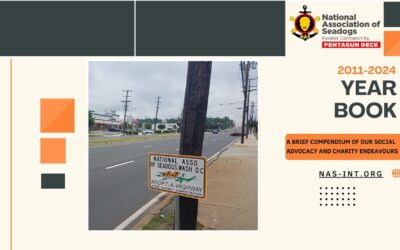Nigeria has lost a total of one hundred and seven billion naira (N107bn) to examination malpractices in the last five years.
THISDAY gathered that the total amount lost by governments and parents to results cancelled on account of examination malpractices in 2006 alone stood at twenty one billion naira (N21bn) while the value of revenue accruing to perpetrators of examination fraud across the country rose to twenty five billion naira (N25bn) in the same year.
In the ranking of states and geopolitical zones on the examination ethics scale, Borno State took the first position in examination malpractices while the South East Zone for the second consecutive year, took the first position among the six geopolitical zones.
Eleven states namely Borno, Abia, Enugu, Imo, Bayelsa, Lagos, Ebonyi, Cross River, Rivers, Edo and Benue have examination indices higher than the national average.
Chairman Examination Ethics Project, Mr. Ike Onyechere disclosed these yesterday while unveiling the 2007 Annual Examination Ethics Report in Abuja. The report, which chronicles the state of compliance of schools, pupils, examiners and examination boards to the principles of ethics and decency in the conduct of public examinations in a given years, showed that the national examination malpractice index rose from 6.9 in 2005 to 7.2 in 2006, an increase of 4.3 per cent.
The 2007 Report also revealed that examination malpractice related sexual harassment of female students by male lecturers in the infamous sex-for good-grade racket increased to new and dangerous dimensions in tertiary institutions in the year under review.
But it was not all gloom as the Federal Capital Territory (FCT) led the pack of states that witnessed reduction in the incidents of examination malpractices. FCT emerged as the most ethics friendly state in the country with Examination Ethics Index (EEI) of 99.70 and Examination Malpractice Index (EMI) of 0.30. Kebbi state came second while Anambra, Delta and Oyo followed in that order.
According to Onyechere, the report indicates that examination malpractices has continued to ravage the country, "planting seeds of unethical and criminal values in the fertile minds of youths and turning educational institutions into venues of breeding future generations of criminals".
The menace of examination malpractice, he said was no longer a matter of indiscretion involving students but has metamorphosed into organised crime controlled by powerful syndicates and with the active connivance of educational institutions, education ministries, examination boards, supervisors, invigilators and examiners who now extort money from candidates in examination halls in aid of examination fraud.
He noted that the negative scenario in the country today characterised by serial corruption, failed policies, projects and programmes, advance fee fraud syndrome, money laundering, drug trafficking, copyright violations, counterfeit and fake drugs, failed infrastructure as well as failed educational system was largely due to the false foundation laid for present generation of Nigerians through examination malpractice.
Onyechere also lashed at lecturers in tertiary institutions who he accused of perpetrating examination malpractices and bastardising the educational system through the compulsory sale of their handouts. He disclosed that lecturers in universities, polytechnics and colleges of education across the country extorted about fifty billion naira (N50bn) from students through sale of handouts in 2006.
"The purchase of such handouts from lecturers is the major conditionality for passing examinations. In some institutions of higher learning, refusal or inability to buy handouts attracts instant failure. How brilliant a student is or how well he or she performed in examination are inconsequential considerations. Many institutions have anti-handout policies but such policies remain paper tigers as they remain un-enforced.
Some lecturers increase their intake by failing large numbers of their class and insisting that the failed students re-purchase the handouts. Some organise unnecessary tutorials and force students to pay for it. Some insist that their students produce their project report in their business centres at designated amounts. The content and quality of the project becomes a secondary consideration," Onyechere said,
Prizes would be presented to the FCT and the five states that emerged as the most ethics friendly entities while a total of 27,000 books on Exam Ethics valued at over twenty million naira (N20m) will be distributed to award winning states.
From Onwuka Nzeshi in Abuja
This Day
Sunday, September 30, 2007


